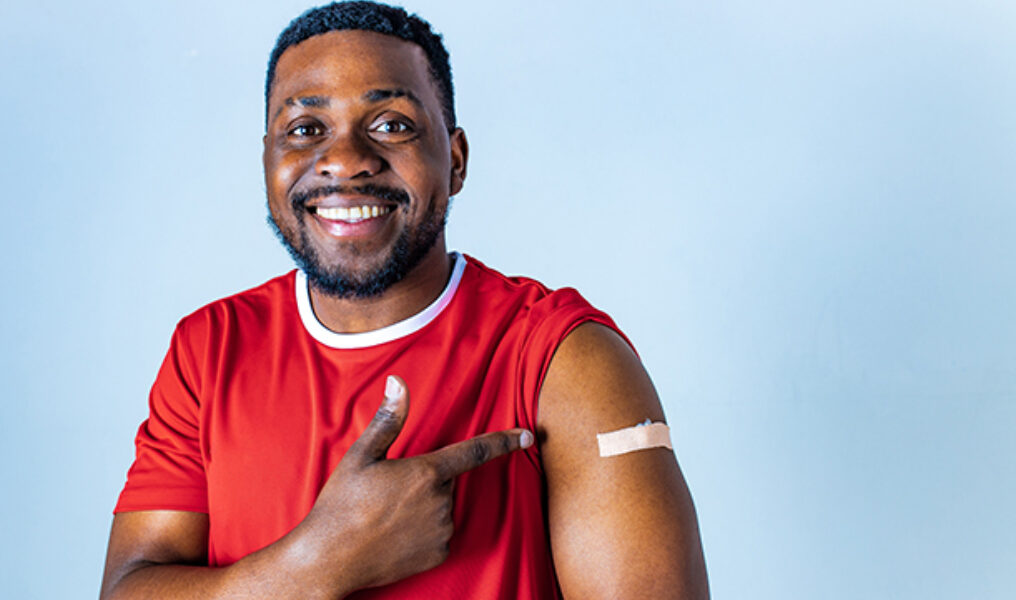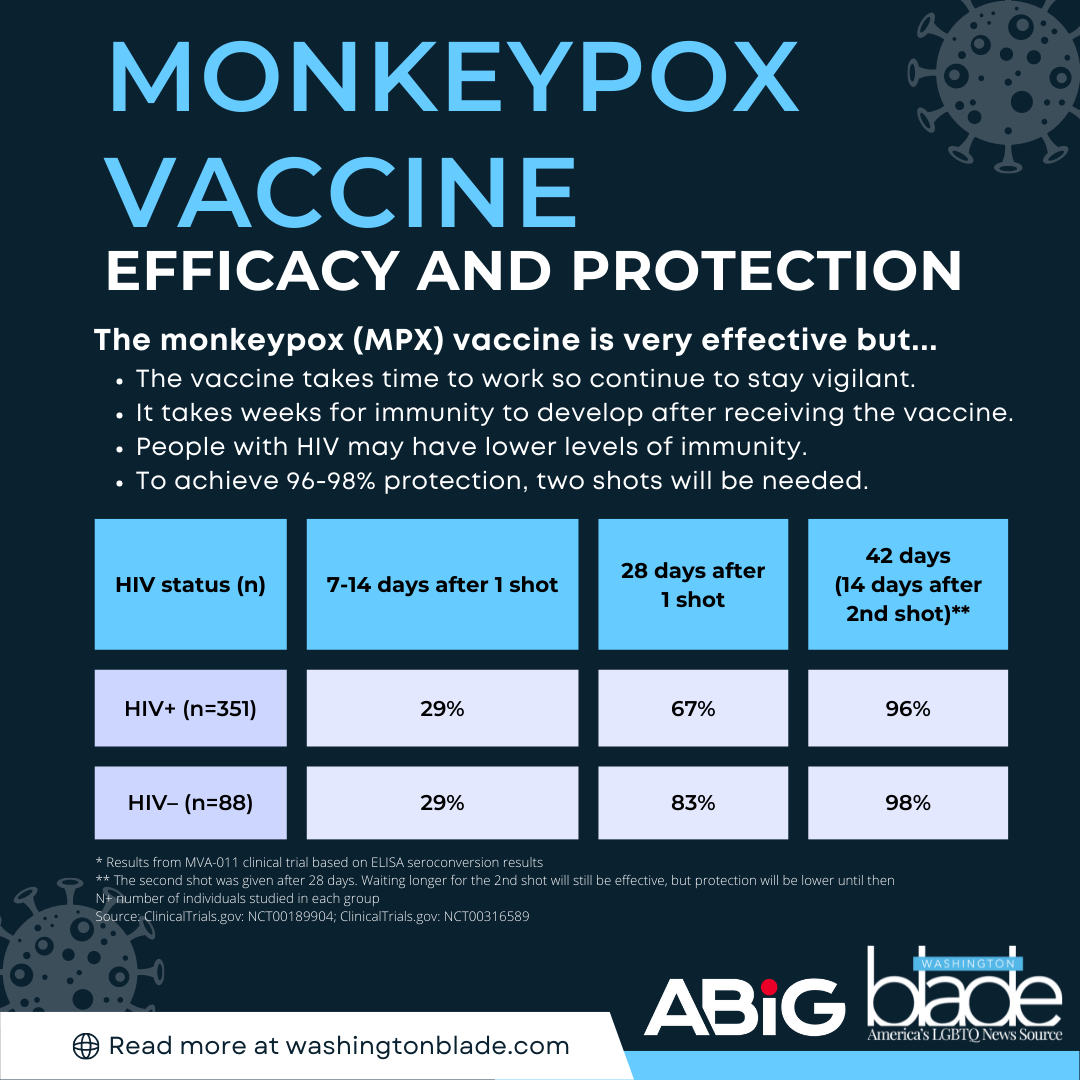Should You Get the Monkeypox Vaccine? Yes — But Give It Time to Take Hold
Clinical trials show vaccine effectiveness takes a few weeks

By Dr. N. Adam Brown, Washington Blade
A review of academic literature published in the “Journal of Internet Medical Research” last year determined, when it comes to information about health topics, social media is not the place to turn. (Unless you follow me, of course!) One study found 87 percent of health-related posts contain misinformation. More than 40 percent of posts about vaccines contain incorrect information.
These findings are, perhaps, not surprising. But they are important to keep in mind as we doom-scroll for information about monkeypox.
I’ve already seen a number of posts on Twitter claiming to have monkeypox breakthrough infections after vaccination. One author said they developed a monkeypox rash two weeks after vaccination. While this person’s experience was not likely a breakthrough case, the post brings up important questions. How much protection does a person have after being vaccinated and when? And, as some cities move to a one-dose regimen due to vaccine supply, what does research say about the number of doses needed to protect a person?
Monkeypox rashes and lesions can take up to three weeks to develop after exposure to the virus, which means it is possible the Twitter user mentioned above was exposed before vaccination or shortly after. The time following vaccination and when you are exposed to the virus matters in terms of the amount of protection you have.
Simply put: vaccines do not offer protection immediately after being administered. Remember what we learned when getting our COVID-19 vaccines: No matter which vaccine you received, you were not fully protected until two weeks after the final dose. For the monkeypox vaccine the time to protection is actually longer. Clinical trials indicated it takes up to four weeks for patients to develop strong protection. In fact, two weeks after the first dose, the immune response was just 29 percent! Take extra care during this period to prevent spread.
Now, what about one dose versus two? With limited monkeypox vaccine supply, cities and states should consider limiting doses to one per person to protect more people.
The U.S. Food and Drug Administration (FDA) approved a vaccine, Jynneos, developed by the U.S. government and Bavarian Nordic in 2019 to protect against both monkeypox and smallpox. The FDA recommended a two dose regimen, four weeks apart. This regimen outperformed an older smallpox vaccine (ACAM2000) for producing an immunological response. The Jynneos vaccine also has fewer side effects and is much safer.
Unfortunately, the Jynneos vaccine is in very short supply. Bavarian Nordic, the only manufacturer of the vaccine worldwide, says it can produce 30 million doses of Jynneos annually, meaning with a full regimen less than 15 million patients worldwide will have full protection. That’s why cities like Washington, D.C. and New York have chosen to move to a single-dose regimen. The United Kingdom and some countries in Europe have done the same.
This approach is the right one.

In clinical trials, recipients who were HIV negative had an 83 percent immune response 28 days after one dose compared to 98 percent with two doses at 42 days. HIV positive recipients had a 67 percent immune response 28 days after one dose. It was 96 percent 42 days after two doses.
While that data indicates a two-dose regimen is best, with supplies limited, a one-dose regimen for most people is a reasonable approach. That strategy allows double the group of individuals to be immunized — even though there is slightly lower efficacy. A recent article in Science highlighted this important point. Jynneos’ CEO, an immunologist, said one dose of the vaccine conferred a “robust immune response.”
There is one caveat, however. Based on the clinical trial data, we might need to stick with the original two-dose regimen for people who are immunocompromised or live with HIV (irrespective of immune status).
In the face of what appears to be a public health system in disarray, Americans need to be partners in fighting the virus’ spread. Get vaccinated when available. Individuals who are most at risk should sign up now to receive a vaccine. Second, understand it takes time after receiving the vaccine to develop immunity whether you are HIV positive or not. Understand monkeypox symptoms, the timing of symptoms and how to reduce your risk. And, of course, take care when it comes to social media. Spread truth.
Dr. N. Adam Brown is a practicing emergency medicine physician, founder of a healthcare strategy advisory group ABIG Health, and a professor of practice at the University of North Carolina’s Kenan-Flagler Business School. Previously he served as President of Emergency Medicine and Chief Impact Officer for a leading national medical group. Follow him on Twitter @ERDocBrown. This article originally appeared in the Washington Blade and is made available in partnership with the National Gay Media Association.









